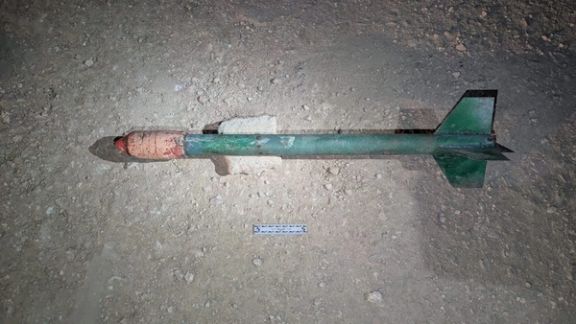Iranian political prisoner dies after days in hospital
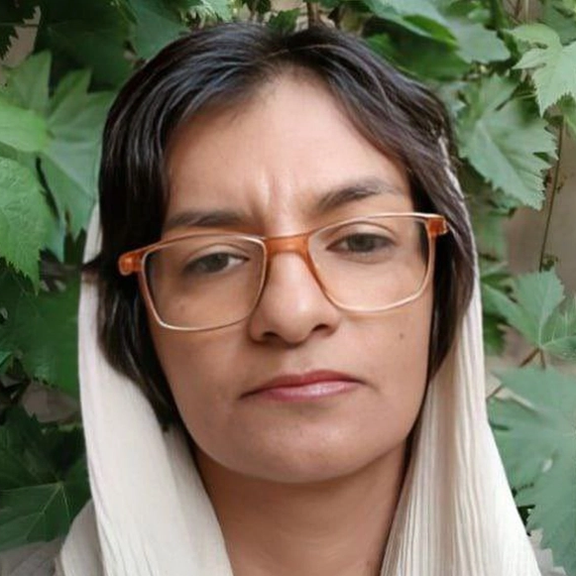
Iranian political prisoner Somayeh Rashidi died after several days in hospital following her transfer from Qarchak prison, the judiciary's Mizan news agency reported on Thursday.

Iranian political prisoner Somayeh Rashidi died after several days in hospital following her transfer from Qarchak prison, the judiciary's Mizan news agency reported on Thursday.
Mizan said Rashidi, who was arrested in 2022 and 2023 for alleged ties with the exiled opposition group Mujahideen-e-Khalq (MEK), had previously been released under what it called “Islamic clemency” but later resumed contact with the group. It accused her of receiving money to carry out sabotage missions, including arson.
Rights groups and opposition outlets had earlier reported that Rashidi, 43, was repeatedly denied urgent medical treatment despite a serious condition.
Iran International reported earlier in the month that her level of consciousness had dropped and doctors had little hope of saving her.
Family members had voiced concern after Rashidi suffered several seizures and was moved to Mofatteh Hospital in Varamin in recent days.
According to sources who talked to Iran International on condition of anonymity, security officials attempted to pressure the family to describe her hospitalization as the result of a suicide attempt.
Rashidi, born in 1983, was detained in April while writing slogans in Tehran’s Javadieh district and initially held in Evin prison before being transferred to Qarchak after an Israeli strike on the facility in July. She was reportedly beaten during her arrest.

Iran’s centuries-old carpet industry, once a symbol of cultural prestige and a $2 billion export powerhouse, is unraveling under US sanctions, shifting consumer tastes and rising competition, industry officials and traders say.
Exports of handmade rugs, which stood at more than $400 million in 2017, fell to just $41.7 million in the year to March 2025, according to customs data -- a drop of over 95% from their peak in the early 1990s, AFPreported.
The collapse followed Washington’s 2018 reimposition of sanctions, cutting off the US market that once bought more than 70% of Iranian carpets.
“During the unkind and cruel US sanctions, we lost our biggest buyer,” said Zahra Kamani, head of Iran’s National Carpet Center.
Germany, the UAE, Japan and China are now Iran’s top destinations, but volumes remain a fraction of past levels.
Rivals including India, China, Nepal, Turkey and Pakistan have captured global market share, with some rugs even imported back into Iran, traders said.



At least two million Iranians, many of them rural women, depend on carpet-weaving but earn only a few dollars a day. “We are losing even part of our domestic market due to imports,” Tehran trader Hamed Nabizadeh told AFP.
With tourism also in decline, fewer foreign visitors buy rugs, and even those who do are deterred by price tags of $30,000 or more for silk carpets.
Officials insist revival is possible. Trade Minister Mohammad Atabak said in June that new trade and currency policies could help resuscitate exports.
Analysts argue adapting designs to modern décor trends, using social media for sales and branding carpets more effectively may be key.
But with Iran’s currency plunging, many families at home are turning to cheaper factory-made rugs, and a centuries-old craft risks fading into a relic of the past.
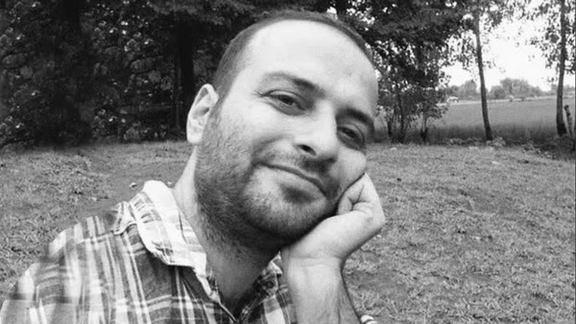
Iran’s Supreme Court has upheld the death sentence of a poet from northern Iran whose works focused on social justice and civil rights, his lawyer said on Wednesday.
“The death sentence of Peyman Farahavar, which had been issued by Branch 1 of the Revolutionary Court of Rasht, was reviewed in Branch 39 of the Supreme Court following an appeal. The appeal was rejected and the death sentence of my client was upheld,” defense lawyer Ramin Safarnia wrote on X.
“A request for a retrial will be submitted to the Supreme Court, and we hope that through legal means, this prisoner’s death sentence will be overturned,” he added.
Farahavar, from Gilan province in northern Iran, was arrested by security forces in 2024.
He was sentenced to death on April 30, this year on alleged charges of baghi (armed rebellion) and moharebeh (waging war against God).
The US-based rights group Human Rights Activists News Agency, citing an informed source close to the family, said the charges were based on his poems and protest activities related to social justice and civil rights.
Iran has executed at least 1,000 people so far this year, according to Norway-based Iran Human Rights (IHR).
At least 30 people have been executed this year on security-related charges such as baghi (armed rebellion) and moharebeh (waging war against God), according to IHR.

Senior Iranian officials highlighted what they called intelligence successes and the urgency of backing armed groups against their arch-foe Israel on Wednesday, a day after Supreme Leader Ali Khamenei delivered a defiant speech.
Esmael Khatib, Iran’s intelligence minister, announced that Iranian operatives had penetrated Israeli intelligence circles and stolen significant data, without citing any evidence.
“Westerners and regime officials admit Iran’s influence within the Zionist regime. The arrest of their citizens and members has been publicized, and acknowledging Iran’s penetration and power is a great blessing … documents stolen from this regime and valuable intelligence obtained are additional blessings,” Khatib was cited as saying by Tasnim News.
Following Israel’s 12-day strike in June, Iran cracked down on networks it claimed were linked to Israel, arresting about 700 alleged Mossad collaborators and executing 6 people for espionage. Israel also charged several of its citizens with spying for Iran.
Khatib praised Iran’s domestic response during the conflict, saying it showcased national unity.
“Many may have made mistakes in their political lives, but their presence, solidarity, and empathy with the people during this 12-day war is another impactful factor that should be encouraged by officials,” he said.
Khamenei, Iran's ultimate decision-maker, delivered a rare televised speech on Tuesday in which he ruled out talks with the United States and emphasized a hard line against what he described as Israeli and American threats.
Concessions to Washington, he said, would mean "Iran’s hands should be so tied that if it were attacked, it could not even respond to the US bases.” Lebanese armed group Hezbollah, Khamenei added, is a "treasure" and should not be counted out.
Support for proxy groups
Parliament Speaker Mohammad Bagher Ghalibaf emphasized Tehran’s commitment to supporting allied groups such as Hamas, Islamic Jihad and Hezbollah, saying they defend Iran’s security interests.
“Our support for these groups defends Iran’s national security and interests. After Operation True Promise 3, the enemy knows that if we don’t stand against the Zionist regime in the Golan, it will advance to Julula in Iraqi Kurdistan, 30 kilometers from Iran’s border,” Ghalibaf was quoted as saying by Revolutionary Guards-linked Tasnim.
“Operation True Promise 3” was Iran’s retaliatory campaign against Israel during the 12-day war, involving multiple waves of ballistic missiles and drone strikes on Israeli targets.
Israeli attacks in the surprise campaign killed nuclear scientists along with hundreds civilians and military personnel. Iranian counterattacks killed 31 Israeli civilians and an off-duty soldier.
Ghalibaf also pointed to challenges in Syria and Iraq, saying Iran remains focused on those fronts.
“Defending the Islamic world, regional security, and human rights requires us to defend ourselves in the Golan, which is why we support resistance groups,” he said.
Addressing Hamas’s October 7 attack on Israel, Ghalibaf stressed that the operation was planned solely by Hamas.
“There was no mistake in Hamas’s October 7 strategy. The legitimacy and righteousness of the resistance remain intact. The decision was entirely Hamas’s, and neither the Islamic Republic of Iran nor Hezbollah in Lebanon were aware of the operation’s details,” he said.
Israel is currently continuing its military campaign in Gaza and has demanded the release of all hostages as a condition for halting the offensive.
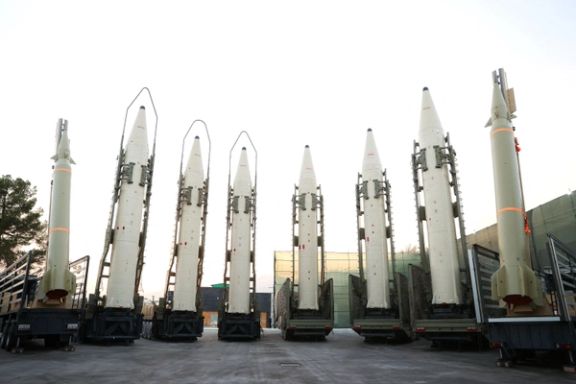
Iran has begun rebuilding missile production facilities damaged in June’s 12-day war with Israel, but experts say a crucial element for solid-fuel production remains missing: planetary mixers, according to an Associated Press report analyzing satellite imagery.
Satellite images reviewed by AP show construction at missile sites in Parchin and Shahroud, where buildings housing mixers appear under repair.
“If they’re able to reacquire some key things like planetary mixers, then that infrastructure is still there and ready to get rolling again,” said Sam Lair of the James Martin Center for Nonproliferation Studies.
Solid-fuel missiles are central to Iran’s deterrence strategy after Israeli strikes decimated much of its air defense.


Iran operates solid-fuel missile production facilities at Khojir and Parchin, both near Tehran, as well as at Shahroud, about 350 kilometers (215 miles) northeast of the capital. All three sites were struck by Israel in October 2024, during earlier hostilities between the two countries.
Experts say the June strikes appeared designed to destroy buildings housing mixers, the machines essential for evenly combining missile fuel.
Iran had been producing more than 200 solid-fuel missiles a month before the war, according to AP.


Iran fired more than 570 ballistic missiles during the conflict, depleting an estimated third of its arsenal, according to the Jewish Institute for National Security of America.
Western officials believe Tehran could try to source mixers and propellant chemicals from China, which has previously supplied materials for Iran’s missile program. Beijing said it supports Iran’s sovereignty but voiced “deep concern” over rising regional tensions.
Iran’s Defense Minister Aziz Nasirzadeh said last month the country was now focused on producing “military equipment with higher precision and greater operational capabilities.”
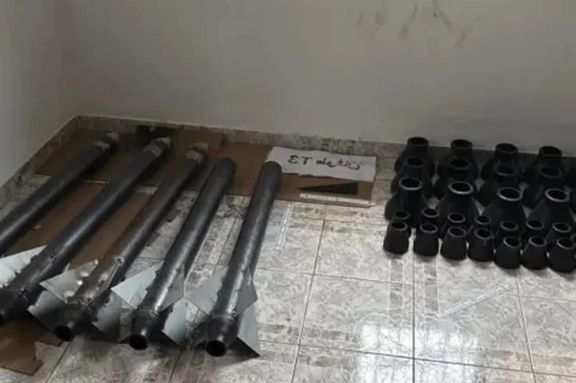
The Israeli military said it uncovered a rocket in the West Bank city of Tulkarm on Tuesday, the second such incident in recent weeks, in what security officials described as part of an Iranian-directed effort to develop rocket capabilities in the territory.
Border Police sappers neutralized the device, and troops swept the area, the army said.
A week earlier, security forces raided a site near Ramallah, seizing dozens of rockets and arresting three suspects after an attempted launch.
Defense officials said, “foreign elements, led by Iran,” were working to promote rocket fire from the West Bank, which could place cities in central and northern Israel within range.
Iran has not commented on the allegations.
